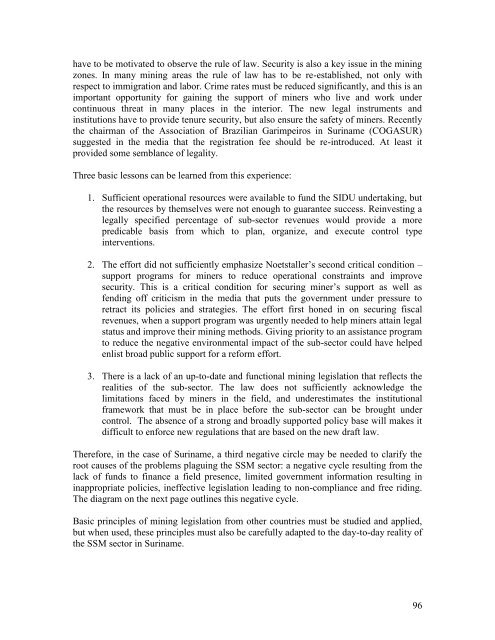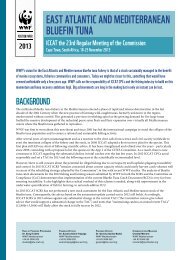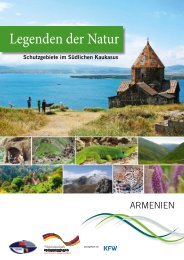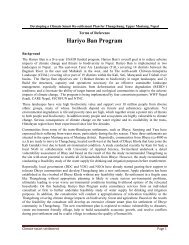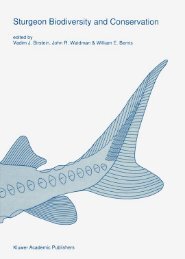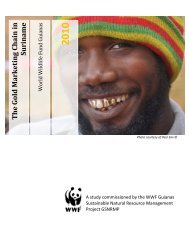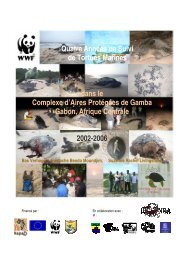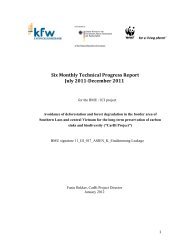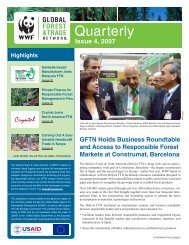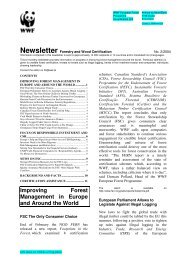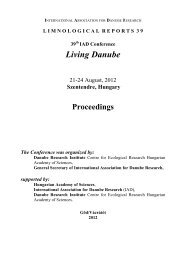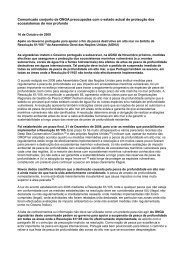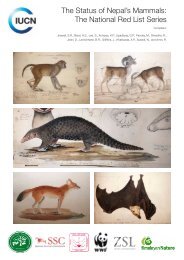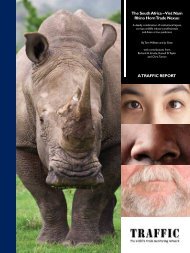SITUATION ANALYSIS OF THE SMALL-SCALE GOLD ... - WWF
SITUATION ANALYSIS OF THE SMALL-SCALE GOLD ... - WWF
SITUATION ANALYSIS OF THE SMALL-SCALE GOLD ... - WWF
You also want an ePaper? Increase the reach of your titles
YUMPU automatically turns print PDFs into web optimized ePapers that Google loves.
have to be motivated to observe the rule of law. Security is also a key issue in the mining<br />
zones. In many mining areas the rule of law has to be re-established, not only with<br />
respect to immigration and labor. Crime rates must be reduced significantly, and this is an<br />
important opportunity for gaining the support of miners who live and work under<br />
continuous threat in many places in the interior. The new legal instruments and<br />
institutions have to provide tenure security, but also ensure the safety of miners. Recently<br />
the chairman of the Association of Brazilian Garimpeiros in Suriname (COGASUR)<br />
suggested in the media that the registration fee should be re-introduced. At least it<br />
provided some semblance of legality.<br />
Three basic lessons can be learned from this experience:<br />
1. Sufficient operational resources were available to fund the SIDU undertaking, but<br />
the resources by themselves were not enough to guarantee success. Reinvesting a<br />
legally specified percentage of sub-sector revenues would provide a more<br />
predicable basis from which to plan, organize, and execute control type<br />
interventions.<br />
2. The effort did not sufficiently emphasize Noetstaller‟s second critical condition –<br />
support programs for miners to reduce operational constraints and improve<br />
security. This is a critical condition for securing miner‟s support as well as<br />
fending off criticism in the media that puts the government under pressure to<br />
retract its policies and strategies. The effort first honed in on securing fiscal<br />
revenues, when a support program was urgently needed to help miners attain legal<br />
status and improve their mining methods. Giving priority to an assistance program<br />
to reduce the negative environmental impact of the sub-sector could have helped<br />
enlist broad public support for a reform effort.<br />
3. There is a lack of an up-to-date and functional mining legislation that reflects the<br />
realities of the sub-sector. The law does not sufficiently acknowledge the<br />
limitations faced by miners in the field, and underestimates the institutional<br />
framework that must be in place before the sub-sector can be brought under<br />
control. The absence of a strong and broadly supported policy base will makes it<br />
difficult to enforce new regulations that are based on the new draft law.<br />
Therefore, in the case of Suriname, a third negative circle may be needed to clarify the<br />
root causes of the problems plaguing the SSM sector: a negative cycle resulting from the<br />
lack of funds to finance a field presence, limited government information resulting in<br />
inappropriate policies, ineffective legislation leading to non-compliance and free riding.<br />
The diagram on the next page outlines this negative cycle.<br />
Basic principles of mining legislation from other countries must be studied and applied,<br />
but when used, these principles must also be carefully adapted to the day-to-day reality of<br />
the SSM sector in Suriname.<br />
96


